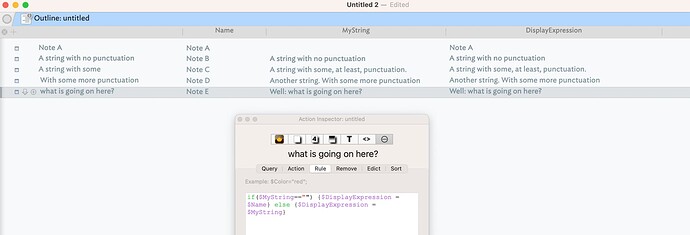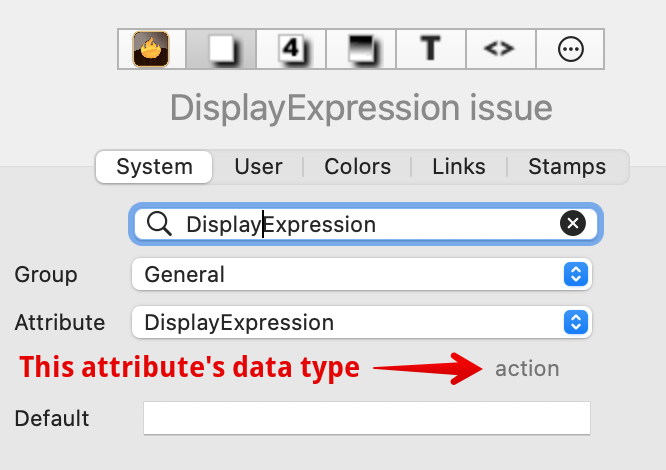Hi. V9.5.2 on an MBP M1
I’ve just come across some behaviour that I’m finding it difficult to understand.
$DisplayExpression (as the first outline column or map title) refuses to show anything beyond the first punctuation item if it’s the reslt of a conditional. (The underlying attribute is correct, it’s the display which is wrong.)
Take the following rule:
if($MyString=="") {$DisplayExpression = $Name} else {$DisplayExpression = $MyString}
This produces the following results in the Outline ‘name/displayexpression’, or as the note title on a map.
- An empty $MyString shows the name as expected
-
$MyString=="A string with no punctuation"→ "A string with no punctuation. -
$MyString=="A string with some, at least, punctuation."→ “A string with some”. (String truncated at comma) -
$MyString=="Another string. With some more punctuation"→ “With some more punctuation”. (String before full stop and following space ignored) -
$MyString=="Well: what is going on here?"→ " what is going on here" (String before colon and following space ignored).
NB: the actual $DisplayExpression is being calculated properly, it’s the display as the first Outline column or the note’s map title which is behaving oddly.
Here’s a screenshot to make it clearer:
A previous post with the same issue was resolved because there had been an earlier action affecting the output, but my problem occurs in a freshly created tbx, with no prior agents / rules at all. (DisplayName does not match DisplayExpression due to punctuation)
DisplayExpression issue.tbx (283.8 KB)
Can anyone see what I’m doing wrong please?
Thanks






